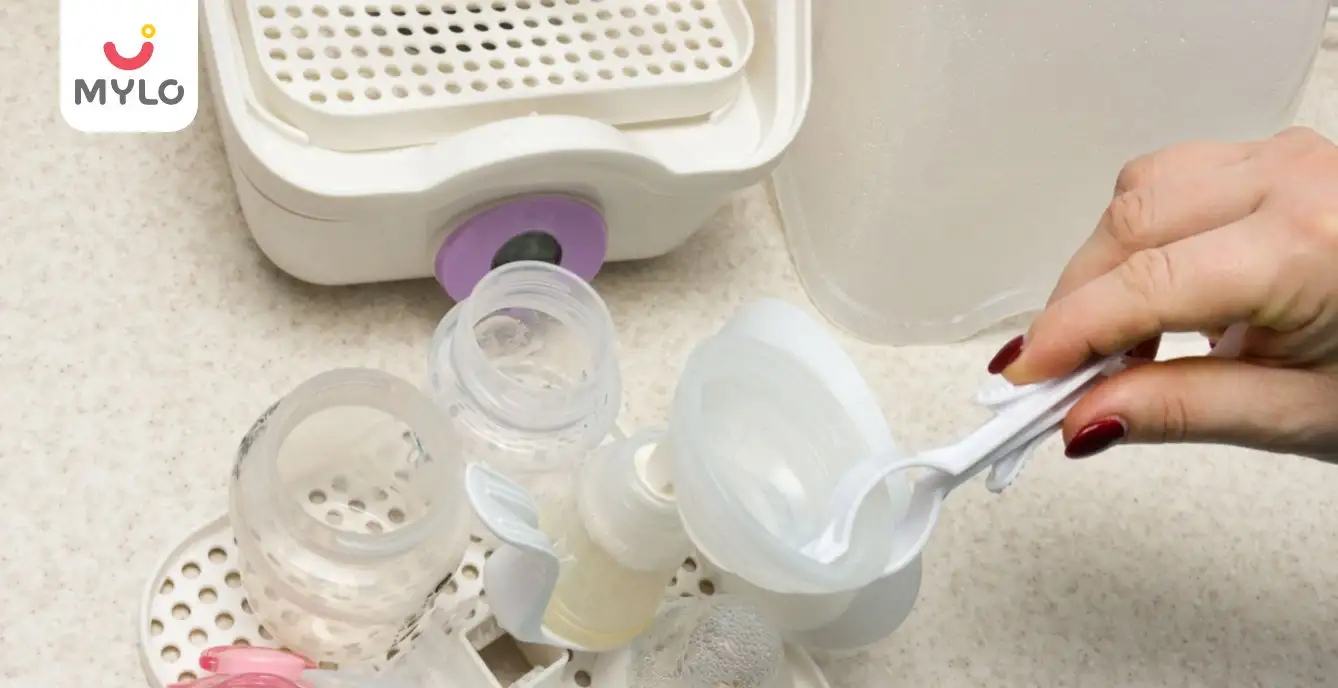Home

White Discharge

White Discharge After IUI: Is It Normal & When to See a Doctor
In this Article

White Discharge
White Discharge After IUI: Is It Normal & When to See a Doctor
Updated on 14 August 2023
Meena and her husband had been eagerly trying to expand their family for quite some time. Finally, after consulting with a fertility specialist, they decided to undergo an IUI (Intrauterine Insemination) procedure. As the days passed, Meena noticed a mysterious white discharge after IUI. Curious and slightly concerned, she wondered if it was normal. Join Meena on her quest for answers to questions like 6 days after IUI white discharge and 13 days after IUI white discharge.
What is White Discharge after IUI?
White discharge after IUI (Intrauterine Insemination) is a common occurrence and is considered to be a normal part of the post-procedure healing process. The discharge is typically mucus-like and may appear white or cloudy in color. It is often a combination of cervical mucus, vaginal secretions, and residual fluids used during the IUI procedure.
The presence of milky white discharge after IUI is usually not a cause for concern, especially if it is not accompanied by other symptoms such as foul odor, itching, or unusual pain. It is a natural response of the body to the IUI procedure and may last for a few days following the insemination.
IS Milky White Discharge After IUI normal?
Yes, milky white discharge after IUI (Intrauterine Insemination) is considered normal and is a common occurrence. The discharge is usually mucus-like and may appear white or cloudy in color. It is a natural response of the body to the IUI procedure.
The discharge is often a combination of cervical mucus, vaginal secretions, and residual fluids used during the IUI procedure. It helps create a favorable environment for the sperm to travel and reach the egg, increasing the chances of successful fertilization.
Why do Some Women Experience White Discharge after IUI?
The experience of white discharge after IUI (Intrauterine Insemination) can be attributed to various factors related to the IUI procedure and the body's natural response. Here are some reasons why some women may experience white discharge after IUI:
1. Residual Fluids
During the IUI procedure, a small amount of fluid, including sperm and the insemination medium, is introduced into the uterus. Some of this fluid may exit the cervix and cause the appearance of white discharge.
2. Cervical Mucus
The cervix produces mucus throughout the menstrual cycle, and its consistency may change in response to hormonal fluctuations. After IUI, the cervical mucus may mix with the residual fluids and contribute to the milky white appearance.
3. Vaginal Secretions
The vagina naturally produces secretions to maintain its pH balance and protect against infections. These secretions can combine with other fluids introduced during IUI and lead to the presence of white discharge.
4. Hormonal Changes
Hormonal changes associated with the IUI cycle can influence vaginal secretions and the cervical mucus, resulting in the observed discharge.
5. Inflammation or Irritation
The IUI procedure involves passing a catheter through the cervix, which can sometimes cause mild inflammation or irritation. This may lead to an increase in cervical mucus and contribute to the discharge.
If you have any concerns or questions about the discharge or your overall well-being after IUI, it's advisable to consult your healthcare provider for personalized advice and reassurance.
How Long Does White Discharge after IUI Last?
The duration of white discharge after IUI (Intrauterine Insemination) can vary from woman to woman and may depend on individual factors. In most cases, the white discharge typically lasts for a few days following the IUI procedure.
The discharge should gradually decrease and may subside within a week or so after the IUI. However, every woman's body may respond differently, and some women may experience the discharge for a slightly longer or shorter duration.
You may also like : Types of Vaginal Discharge, What They Mean and What is Normal?
When to see a Doctor?
You should consider seeing a doctor after an IUI (Intrauterine Insemination) procedure in the following situations:
1. Unusual or Persistent Symptoms
If you experience any unusual or persistent symptoms after the IUI, such as severe pain, heavy bleeding, severe cramping, or fever, it's essential to seek medical attention promptly.
2. Abnormal Discharge
While milky white discharge is normal after IUI, if you notice any abnormal discharge, such as foul-smelling, greenish, or yellowish discharge, it may indicate an infection, and you should see a doctor.
3. Negative Pregnancy Test
If you undergo a pregnancy test after the recommended waiting period and it is negative, you may want to discuss the results with your doctor to understand the next steps or any potential concerns.
4. Emotional or Psychological Concerns
Going through fertility treatments like IUI can be emotionally challenging. If you find yourself experiencing significant stress, anxiety, or emotional distress, consider seeking support or counseling from a healthcare professional who specializes in fertility and reproductive health.
5. Previous Unsuccessful IUI Cycles
If you have undergone multiple unsuccessful IUI cycles, it may be beneficial to discuss your treatment plan and options with your doctor to explore other possibilities or adjustments to improve your chances of success.
6. Any Concerns or Questions
If you have any doubts, questions, or concerns related to the IUI procedure, post-IUI care, or your overall fertility journey, don't hesitate to consult your healthcare provider. They can provide personalized guidance and address any queries you may have.
You may also like : Is IUI (Intra Uterine Insemination) Painful?
Other Symptoms to Watch Out for after IUI
After undergoing an IUI (Intrauterine Insemination) procedure, it's essential to be aware of any symptoms that may require attention or medical evaluation. While some mild symptoms are normal after IUI, certain signs may indicate potential issues that need to be addressed. Here are some symptoms to watch out for after IUI:
1. Severe Pain
Mild cramping or discomfort is common after IUI, but if you experience severe or persistent pelvic pain that does not improve with rest or over-the-counter pain medications, it should be evaluated by a doctor.
2. Excessive Bleeding
Some light spotting or mild bleeding is normal after IUI. However, if you experience heavy bleeding, especially with clots or severe bleeding, it should be reported to your healthcare provider.
3. Foul-Smelling Discharge
While milky white discharge is expected after IUI, foul-smelling or abnormal discharge may indicate an infection and should be checked by a doctor.
4. Fever
A mild increase in body temperature after IUI is common, but if you develop a fever higher than 100.4°F (38°C), it may indicate an infection and requires medical attention.
5. Nausea or Vomiting
While some women may experience mild queasiness after IUI, persistent nausea or vomiting should be reported to your healthcare provider.
6. Swelling or Redness at the Injection Site
If you notice excessive swelling, redness, or signs of infection at the injection site, it should be evaluated by a healthcare professional.
7. Excessive Fatigue
While some fatigue is expected after the procedure, extreme or persistent fatigue may require medical evaluation.
8. Emotional Distress
Going through fertility treatments can be emotionally challenging. If you experience significant emotional distress, anxiety, or mood changes, consider seeking support or counseling.
Tips for Maintaining Vagina Health after IUI
After undergoing an IUI (Intrauterine Insemination) procedure, maintaining vaginal health is essential for overall well-being and to support a healthy reproductive system. Here are some tips to promote vaginal health after IUI:
-
Maintain Good Hygiene
-
Stay Hydrated
-
Wear Breathable Underwear
-
Avoid Sexual Intercourse
-
Physical Activities
-
Monitor Symptoms such as excessive bleeding, foul-smelling discharge, severe pain, or signs of infection.
-
Practice Safe Sex
-
Manage Stress
-
Follow Post-IUI Instructions
-
Maintain Regular Check-ups
FAQs
1. What Kind of Discharge is Normal after IUI?
After IUI (Intrauterine Insemination), it is normal to experience milky white or cloudy discharge. This discharge is typically a combination of cervical mucus, vaginal secretions, and residual fluids used during the insemination procedure. It is a natural response of the body to the IUI process and is usually not a cause for concern unless accompanied by other abnormal symptoms such as foul odor, itching, or pain.
2. Is it Normal to notice white discharge after 10 days of IUI?
Yes, it is normal to notice white discharge after 10 days of IUI (Intrauterine Insemination). The presence of milky white discharge at this stage is commonly seen and is considered a part of the post-IUI healing process. The discharge is usually a combination of cervical mucus, vaginal secretions, and residual fluids from the IUI procedure.
The Bottomline
In conclusion, white discharge after IUI is a common and expected occurrence. This milky white discharge is a natural response of the body to the IUI procedure, and it is typically a combination of cervical mucus, vaginal secretions, and residual fluids. In most cases, this discharge is normal and not a cause for concern, provided it is not accompanied by any unusual or concerning symptoms. However, if there are any doubts or worrisome symptoms, seeking guidance from a healthcare provider is always recommended for personalized evaluation and reassurance.
References
1. Bernardi, S., Rinaudo, A., & Marini, P. (2016). Cervical mucus characteristics and hormonal status at insemination of Holstein cows. Iranian Journal of Veterinary Research,
2. Tansu Küçük. (2008). Intrauterine insemination: is the timing correct?



Written by
Madhavi Gupta
Dr. Madhavi Gupta is an accomplished Ayurvedic doctor specializing in Medical content writing with an experience of over 10 years.
Read MoreGet baby's diet chart, and growth tips

Related Articles
Related Questions
Influenza and boostrix injection kisiko laga hai kya 8 month pregnancy me and q lagta hai ye plz reply me

Hai.... My last period was in feb 24. I tested in 40 th day morning 3:30 .. That is faint line .. I conculed mylo thz app also.... And I asked tha dr wait for 3 to 5 days ... Im also waiting ... Then I test today 4:15 test is sooooo faint ... And I feel in ma body no pregnancy symptoms. What can I do .

Baby kicks KB Marta hai Plz tell mi

PCOD kya hota hai

How to detect pcos

RECENTLY PUBLISHED ARTICLES
our most recent articles

Diet & Exercises Your Wife Can Follow During Pregnancy

Can a diet plan help deal with infertility in women and boost the chances of conception?

Pumping
How to Sterilize Breast Pump: A Comprehensive Guide for New Moms

Medications
Bronchiectasis Meaning in Hindi | ब्रोन्किइक्टेसिस क्या होता है?

Festivals & Celebrations
The Ultimate Guide to Teej 2023: Celebrations, Traditions, and Dates

Conception
Should I Pee After Sex if Trying to Get Pregnant? And 5 Other FAQs
- Menorrhagia: A Guide to Understanding Heavy Period Bleeding (Part 1)
- Indigestion and Heartburn During Pregnancy
- Understanding Follicular Study: A Comprehensive Guide to Female Fertility
- Maternity Fashion: How to Dress in Style in Each Trimester of Your Pregnancy?
- Oligomenorrhea: What Every Woman Needs to Know About Irregular Periods
- Can a Woman with Thyroid Problems Get Pregnant: Conceiving Against the Odds
- Adenomyosis Vs Endometriosis: How to Spot the Symptoms and Seek Early Intervention
- Fertility Test for Men and Women: What to Expect and Next Steps
- Reason for Irregular Periods After Marriage: A Comprehensive Guide
- How Soon Can You Get Pregnant After Stopping the Pill?
- Watery Semen: Is It Normal or a Sign of an Underlying Condition?
- Embryo Transfer: The Ultimate Guide to Procedure, Success Rates and FAQs
- Hyperspermia: The Ultimate Guide to Understanding Excessive Semen Production
- Painful Ejaculation and Its Impact on Men's Health: From Stigma to Solutions


AWARDS AND RECOGNITION

Mylo wins Forbes D2C Disruptor award

Mylo wins The Economic Times Promising Brands 2022
AS SEEN IN
















- Mylo Care: Effective and science-backed personal care and wellness solutions for a joyful you.
- Mylo Baby: Science-backed, gentle and effective personal care & hygiene range for your little one.
- Mylo Community: Trusted and empathetic community of 10mn+ parents and experts.
Product Categories
baby carrier | baby soap | baby wipes | stretch marks cream | baby cream | baby shampoo | baby massage oil | baby hair oil | stretch marks oil | baby body wash | baby powder | baby lotion | diaper rash cream | newborn diapers | teether | baby kajal | baby diapers | cloth diapers |








